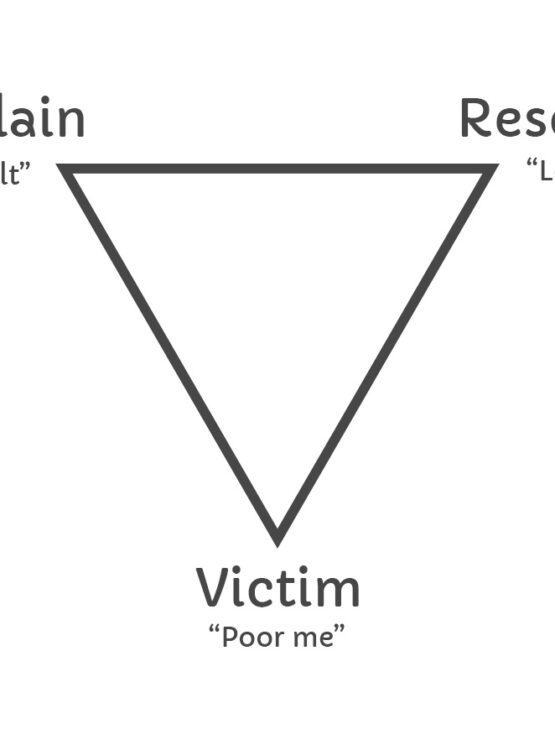What is an Intimacy Coach?

How many spaces do you have in your life where it feels safe enough to talk about what’s really happening in your most intimate relationships? For most people, there are very few. Some people feel like they’d be burdening their friends if they got really honest, and therapy doesn’t always feel like the right place either – especially if the problems you’re having involve sex.
Not to mention the fact that you might have already talked endlessly about the challenges you’re having – and that no longer feels like it’s really changing anything.
Intimacy coaching is designed to be a space where you can work through problems you’re having in your closest, highest-stakes relationships, whether it’s about emotional or sexual intimacy. You might have recently started dating someone, and noticed that you’re facing some difficult and familiar patterns in how you feel and behave around them, or in how they treat you. Or you might have been married for many years, and noticed that the relationship isn’t feeling as fulfilling, close, or honest as you’d like it to. Intimacy coaching aims to explore what’s going on with a view to creating lasting, embodied change.
Who is intimacy coaching for?
Intimacy coaching is for people who are invested in the idea of personal growth, and feel excited about a process of change. It’s for people who have realised something isn’t feeling quite right, and know that now is the time to put some work in to understanding why, and finding a way through. Many clients already have some experience of personal growth work, whether through therapy, books, courses, or workshops, but this isn’t essential. Ultimately, it’s for people who are wanting to feel more empowered in their intimate lives and relationships.
Intimacy coaching is also best suited to people who have a pretty clear idea of what they want from the process, and are not currently struggling with mental health challenges that are impacting their relationships. This is because while coaching can go deep, it isn’t counselling or therapy, and isn’t the best tool to work with depression or other psychiatric diagnoses.
What issues does intimacy coaching address?
Intimacy coaching can be helpful for a wide range of problems, both sexual and emotional. Some intimacy coaches focus more exclusively on sex, and will commonly work with challenges around orgasms, libido, ejaculation, and erections. My own work includes emotional intimacy, and I often work with people who are struggling to identify what they want in their relationships and ask for it – whether in the bedroom or more generally. Many of my clients also want to feel more emotionally close to the people in their life, and struggle with really feeling and sharing the full range of their emotions. Ultimately, many people come to my practice feeling dissatisfied, resentful, or frustrated in some aspect of their relationships, and together we make sense of what’s happening and why it’s showing up, so that we can start creating some changes.
How does intimacy coaching work?
Every coach works in a different way, and there are many different approaches that have different focuses. So, if you’re wondering whether intimacy coaching is the right thing for you, I recommend talking to a few coaches about their method to find out more.
The coaching I offer works by making sense of the underlying emotional root cause underneath challenges that are showing up in sexual or emotional intimacy. Often, we can trace these roots back to childhood, and our earliest relationships with our caregivers, because these gave us the blueprint for what it means to be close to another person. If you had important needs that weren’t fully met in those relationships, such as not having your needs truly honoured, the full range of your emotions seen and responded to, or conflict being fully resolved with care, then you’re likely to carry the pain of this into your adult relationships. This can result in you finding it incredibly difficult to ask for what you really want, knowing where your boundaries are, or staying touch with how you really feel, all of which can get in the way of having a deeper connection with your closest people.
Intimacy coaching offers a space both to make sense of this, and then begin to work through it by finding ways to give yourself the things you really needed when you were younger, that were not fully met.
My own approach also works by including the body in this process. We’re not only endlessly talking, but including the whole of your experience – body, feelings, and mind. This is a more holistic approach than traditional talk therapy, which can be much more powerful – after all, change is something you feel on the inside, rather than only knowing cognitively.
What happens in an intimacy coaching session?
This will also depend on the practitioner and their approach, though the process is likely to start with an initial session where your coach will ask you in depth about the challenge you’re bringing, how it’s showing up, and your sexual and relationship history. You’ll also likely be asked about what it is you ideally want from the process, and this is an important conversation to have – how will you know whether coaching is working if you don’t have an idea of what success would look like?
After this initial conversation, some coaches might have a specific process they’ll go through with you over a number of sessions, while others will work in a more intuitive and open-ended way. Another important distinction to make is that some coaches will work with physical touch and bodywork, while others won’t. In my own practice, while I work with the body, I don’t offer physical touch. Instead, I guide clients to start noticing more of how their body feels, and learning to listen to their own embodied wisdom.
In my own practice, sessions may include:
- Cognitive understanding: connecting the dots and creating an intellectual context and framework for the work we’re doing
- Body tracking and somatic awareness: guiding you through noticing sensation in the body, and giving time and space to feel it
- Embodiment exercises: using posture, movement, and sound to allow expressions that may be habitually suppressed
- Nervous system regulation: noticing when you’re checking out or starting to feel overwhelmed or frozen, and finding tools and practices to bring you back to presence
- Guided meditations: slowing everything right down, and giving you space to allow whatever is in your experience
- Parts work: exploring the different voices that show up in your internal dialogue in difficult situations, and working with them to resolve internal conflicts
So what’s next?
If you’re wondering whether intimacy coaching could be a good fit for you, I recommend chatting with a few coaches to get a sense of who they are and how they practice. The relationship you have with your coach will be a crucial part of the work, so it’s important to make sure it feels like a good fit. If you identify as LGBTQ+, polyamorous, non-monogamous, are neurodivergent, or have other specific identities or experiences that might impact the work, make sure to ask them about their level of competence in these areas.
I offer a free 20 minute call to anyone interested in coaching to get a sense of how I work, and ask any questions they’d like to about my practice. You can read more about that here if you’re curious to take the next step.



